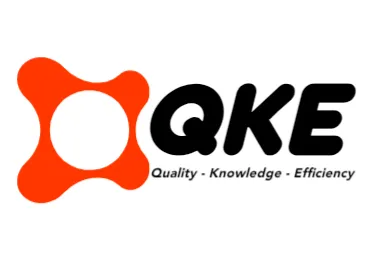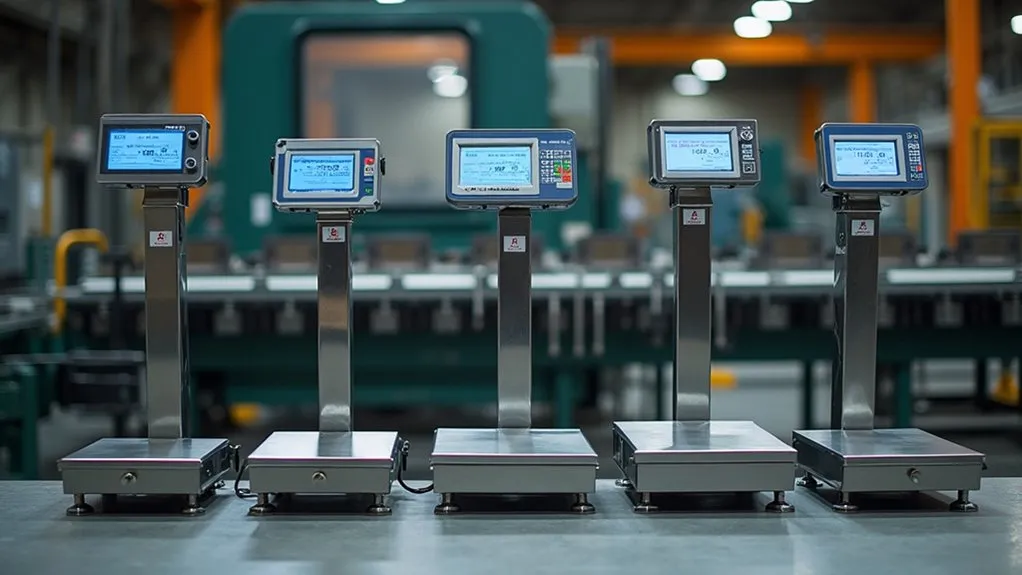The top 5 belt scale models for industrial applications include Siemens Milltronics MSI and MMI, Thermo Fisher Scientific Ramsey Series, Thayer Scale NTEP Certified NAR Belt Scales, Rice Lake Weighing Systems Master Belt Scales, and Mettler Toledo & Bizerba. Each model offers unique features tailored to meet the precision, reliability, and compliance needs of various sectors. From high-capacity harbor logistics to heavy-duty mining and food industry applications, these scales provide accurate and efficient weighing solutions, with more insights to be discovered.
Key Takeaways
- Siemens Milltronics MSI and MMI offer precision with patented load cell technology, handling up to 12,000 metric tons per hour.
- Thermo Fisher Scientific Ramsey Series 14 provides ±0.125% accuracy, suitable for basis-of-payment applications.
- Thayer Scale NTEP Certified NAR Belt Scales achieve ±0.125% accuracy, ideal for certification and billing across diverse applications.
- Rice Lake Weighing Systems Master Belt Scales feature a comprehensive suite, including models for high-capacity harbor logistics and heavy-duty mining.
- Mettler Toledo & Bizerba offer advanced conveyor systems and dynamic checkweighers, ensuring precision and compliance with industry standards.
Siemens Milltronics MSI and MMI: Precision in Heavy-Duty Environments

In the realm of heavy-duty industrial applications, the Siemens Milltronics MSI and MMI belt scales stand out for their precision and durability.
Engineered for process and load-out control, these scales feature patented load cell technology, ensuring high accuracy in diverse industrial environments.
Engineered with patented load cell technology, Siemens Milltronics MSI and MMI belt scales ensure precise process and load-out control across diverse industrial environments.
The MSI, a full-frame, single-idler belt scale, offers an accuracy of ±0.25% to ±0.5% and can handle up to 12,000 metric tons per hour. For critical applications demanding superior precision, the MMI consists of multiple MSI scales in series, achieving accuracy levels of ±0.25% or better.
Both models are constructed with robust materials, making them reliable for dynamic in-line weighing in severe conditions, from mining to chemical processing.
They are also designed to support multiple applications, enhancing operational efficiency across various industries, as highlighted in the Siemens Belt Scale Systems overview.
Thermo Fisher Scientific Ramsey Series: High Accuracy for Diverse Applications
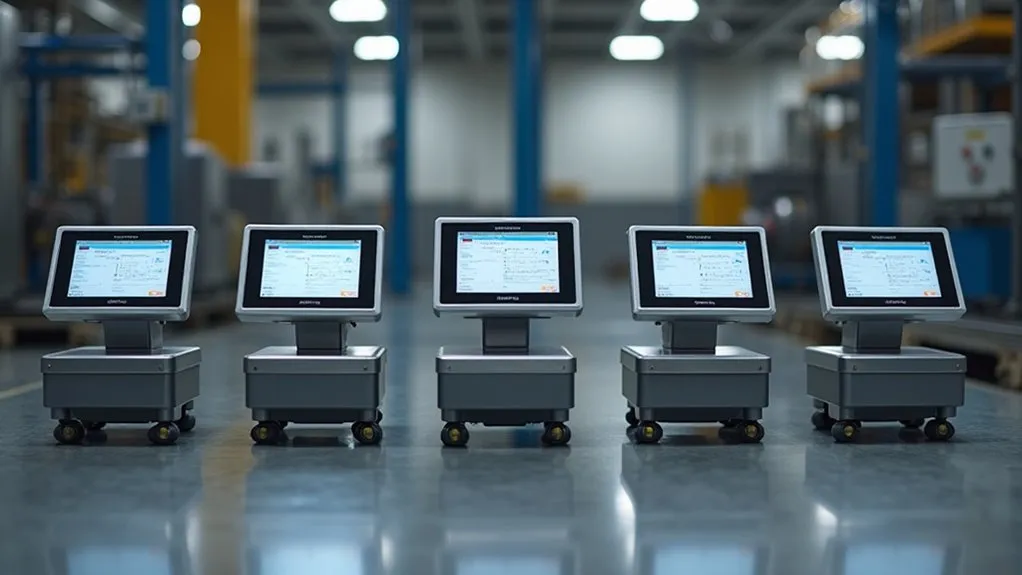
Shifting focus to another titan in industrial weighing solutions, Thermo Fisher Scientific’s Ramsey Series offers a diverse range of belt scales designed for high accuracy across various applications. The Ramsey Series 14, with its ±0.125% accuracy and global certifications, underscores the importance of precision and certification benefits in basis-of-payment applications. The Series 17, tailored for high-speed operations, ensures enhanced accuracy with a multi-idler design. For standard industrial use, the Series 20 provides versatility across various sectors. The Ramsey Series incorporates advanced technology, including full-floating weighbridges and digital signal conversion, to ensure reliability and performance.
| Feature | Ramsey Series 14 | Ramsey Series 17 | Ramsey Series 20 |
|---|---|---|---|
| Accuracy | ±0.125% | ±0.25% | ±0.5% |
| Design | Single-idler | Multi-idler | Single or dual-idler |
| Applications | High-precision | High-speed | General in-plant |
Thayer Scale: Versatility Across Industries With NTEP Approval

Thayer Scale’s NTEP Certified NAR Belt Scales exemplify versatility across industries, offering 4, 6, and 8 idler models tailored for applications that demand verifiable accuracy.
Demonstrating a proven accuracy of ±0.125%, these scales are suitable for commercial certification and billing purposes, with custody transfer and NTEP-approved versions achieving 0.10% to 0.125% accuracy.
Achieving a proven accuracy of ±0.125%, ideal for commercial certification. Custody transfer and NTEP-approved versions offer 0.10% to 0.125% accuracy, perfect for billing purposes.
The NAR models accommodate belt speeds from 100 to 1000 ft/min and handle flow rates from 102 to 10,200 tons per hour, serving diverse sectors.
Utilizing a rocking flexure suspension in an approach-retreat configuration, Thayer Scale ensures measurement stability, making their belt scales a reliable choice across various industries.
Rice Lake Weighing Systems Master Belt Scales: Solutions for Every Need
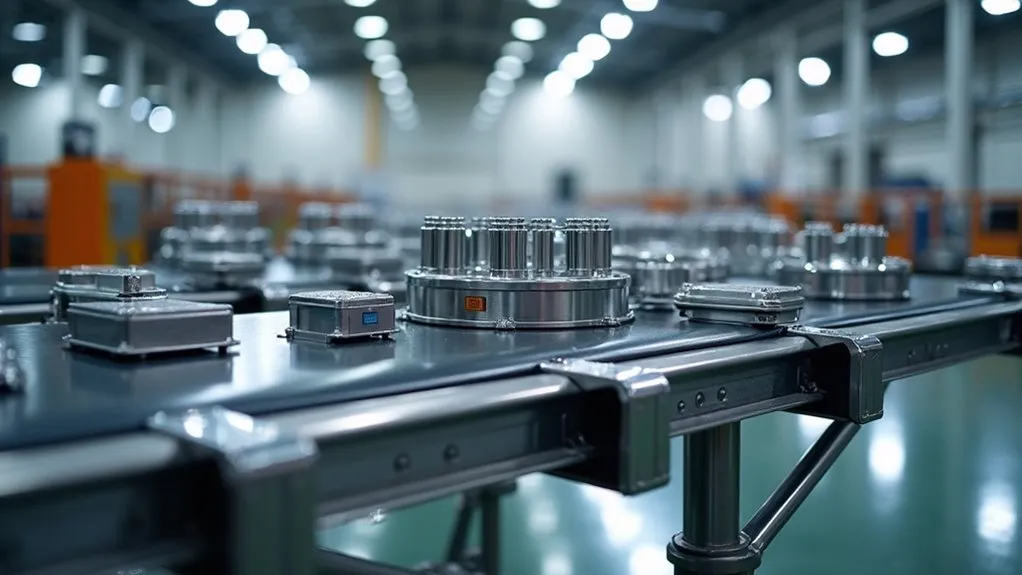
Rice Lake Weighing Systems presents a comprehensive suite of Master belt scales tailored to meet the diverse needs of various industries.
With models like the BS143 for high-capacity harbor logistics and the BS211 for heavy-duty mining applications, each scale is designed with material durability and custom mounting options in mind.
The BS221DB offers versatility with two arms and pivot load cell mounting for simple assembly on most conveyor side supports.
For specialized applications, the BS421 caters to the food and chemical sectors with its low-load design, while the BS311M provides a cost-effective solution with a straightforward load cell beam configuration.
Mettler Toledo & Bizerba: Leading Brands in Industrial Weighing Technology
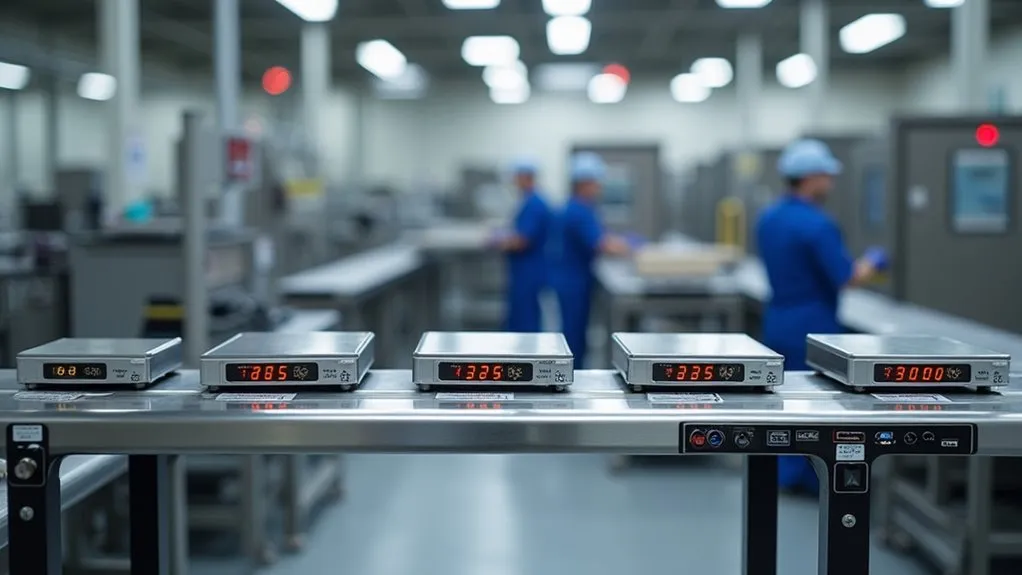
While the industrial weighing landscape is diverse, Mettler Toledo and Bizerba emerge as leading brands, each offering a broad spectrum of specialized solutions tailored to meet the stringent demands of various industries.
Mettler Toledo’s portfolio includes a variety of industrial scales, from bench to truck scales, and advanced conveyor systems like the 9477 weigh conveyor, designed for high-speed, accurate in-motion weighing.
Bizerba focuses on the food industry, providing dynamic checkweigher systems capable of handling up to 400 packages per minute, with modular designs for seamless integration with other inspection systems. Both brands underscore industrial innovation in weighing technology, offering robust construction, integrated data management, and compliance with industry standards, ensuring precision, reliability, and efficiency in industrial weighing processes. This commitment to quality assurance ensures proper weight labeling and facilitates audit traceability through accurate weight documentation.

 Tiếng Việt
Tiếng Việt 日本語
日本語 中文 (中国)
中文 (中国) 한국어
한국어